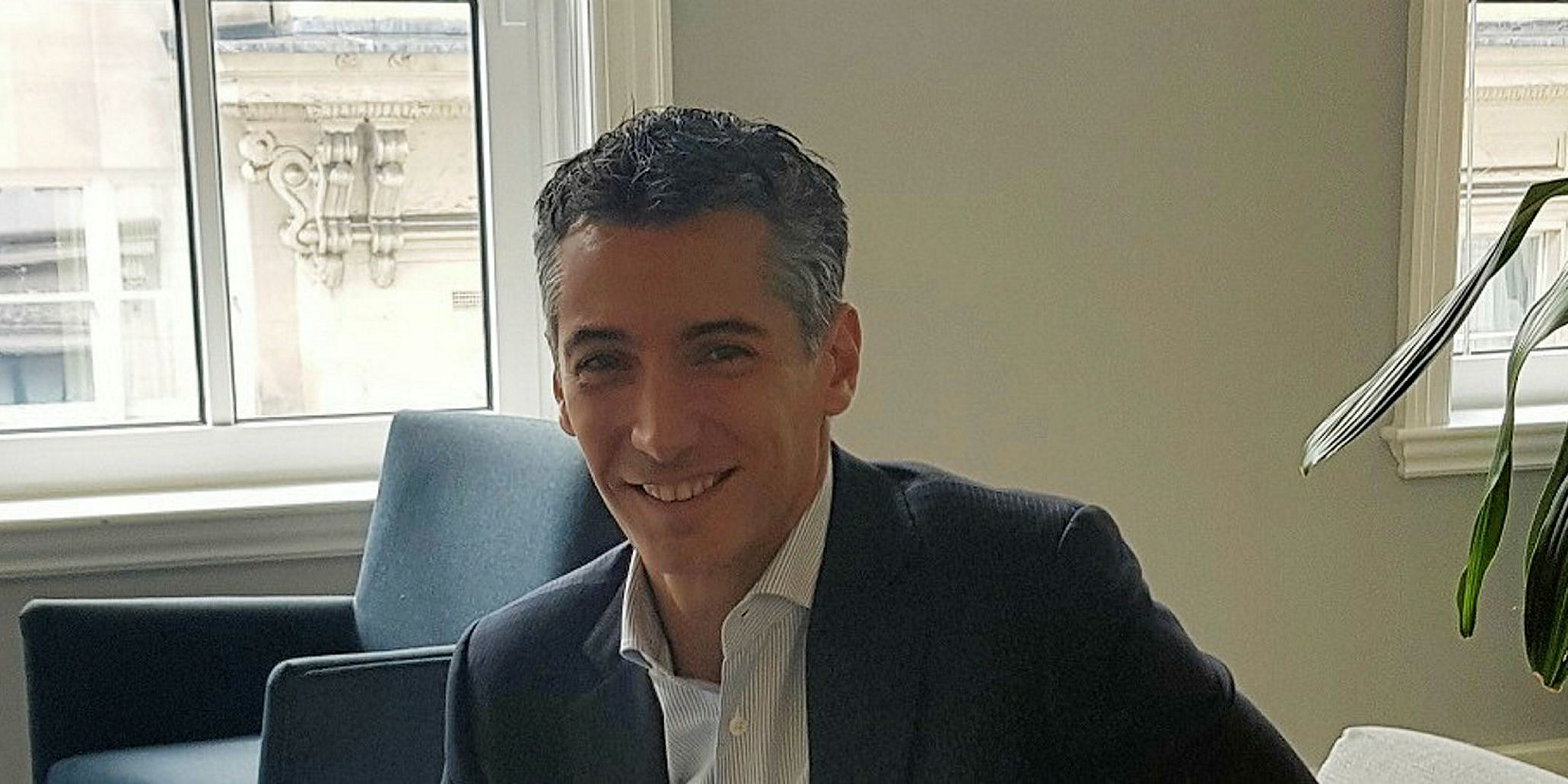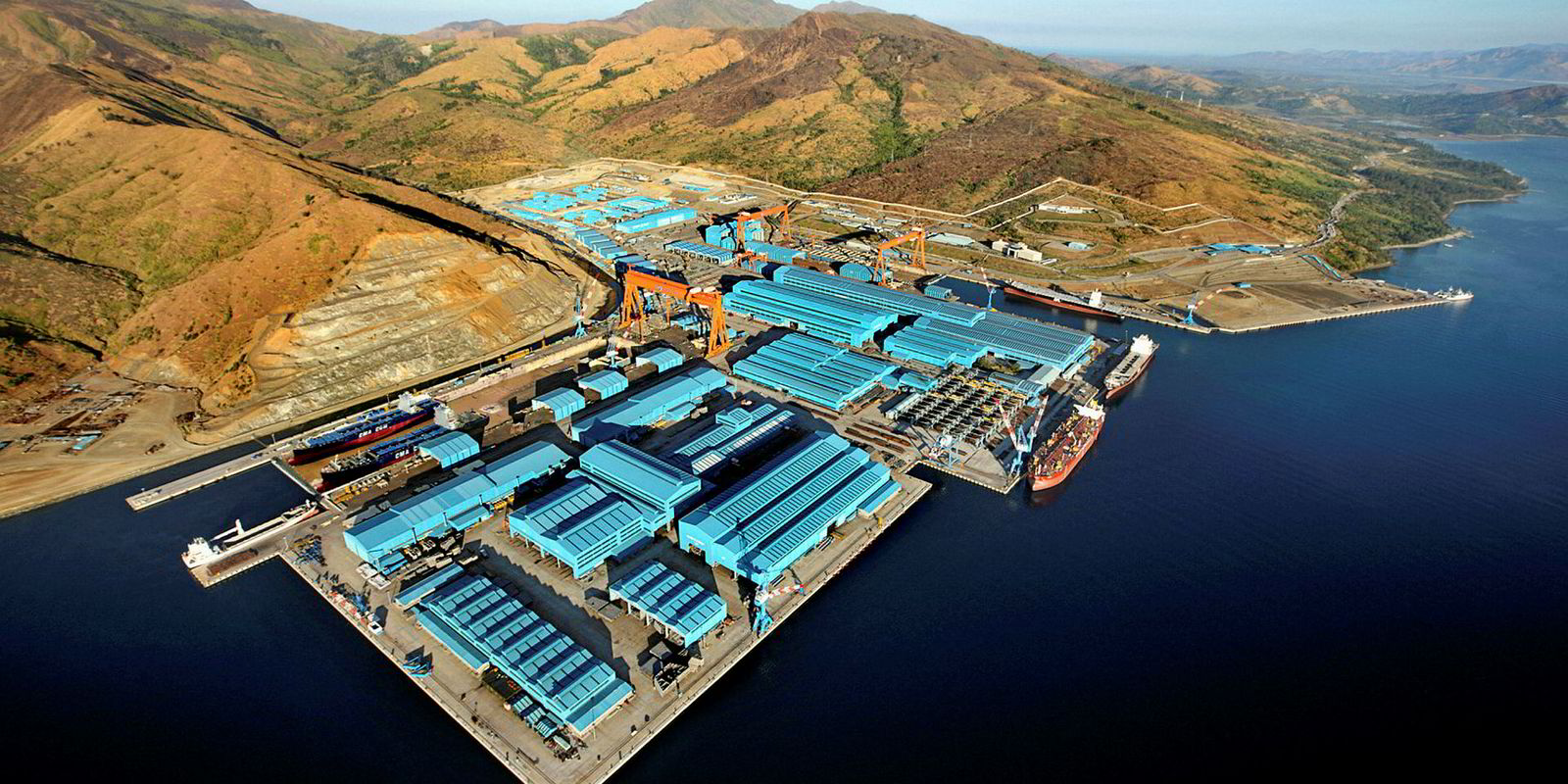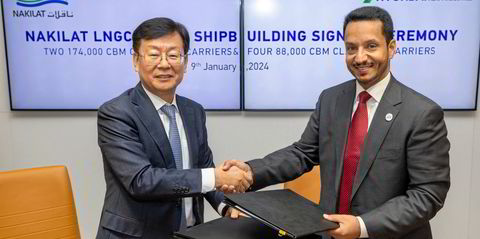Philippines port group ICTSI is still exploring the possibility of acquiring the bankrupt Hanjin Subic shipyard - but any plans for the site could take up to 20 years to realise.
The company's senior vice president and global corporate head, Christian Gonzalez, told TradeWinds that there is an opportunity to create a major deep water gateway there.
"This could take 10 or 20 years," he said. "There is not even a major road there."
"If there is a deal to be made with the banks, and we're not sure there is, there could be an opportunity for a consortium for a multipurpopose and transhipment operation. This wouldn't need a road."
Unofficial talks are continuing, but nothing official will take place until litigation beteen Hanjin and its creditor banks has been completed.
ICTSI could hold the land for the future, while the navy could use the slipways.
The site could house an LNG terminal and handle cars, bulk and general cargo.
"Shipbuilding is dead at Subic, but shiprepair is another matter," Gonzalez said.
He added that things came to a head with the yard when lease payments on the land began to fall due, combined with a decline in orders.
When asked whether ICTSI will ever move into shipping, he said: "1,000% no and I can speak for the whole group on that!"
Trump and tariffs
Turning to the volatile situation in the Middle East, Gonzalez said: "I don't think Trump is interested in a conflict, but the people below him may be a different story.
"Iraq has been doing really well for us. Containerships are not direct targets but they are potentially collateral damage."
And the tariff wars between the US and China have "long-term potential benefits for us," he added.
Gonzalez explained that when lower labour costs in southern China started to rise, manufacturers moved to the north.
But costs here are expected to rise as well, so manufacturers like Foxcon were already moving to other South-east Asian locations, he added.
"The tariffs will accelerate that. There is an opportunity for the Philippines," he said.
ICTSI works on a decentralised business model in Asia and in developing regions like Latin America and West Africa.
Gonzalez said the group aims to lower overall costs through efficiency and improved infrastructure at terminals it takes over.
It can double the size of vessels able to call, bringing down slot costs.
"We are keen to keep growing," he said. "We are opportunity driven. People are getting richer in developing regions even if it is slow going."
ICTSI is targeting a revenue rise of between 60% and 70% over the next five years, doubling profit if possible.
"There are headwinds but it is exciting," Gonzalez said.






